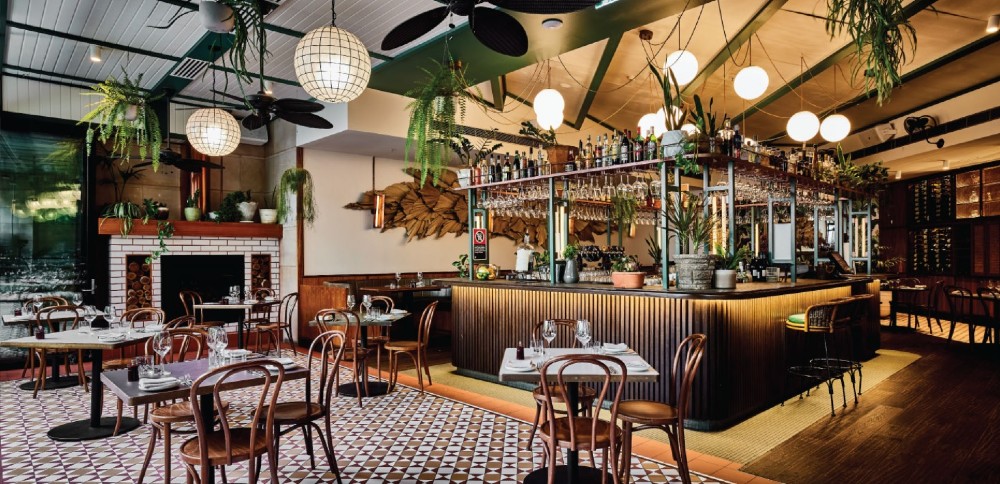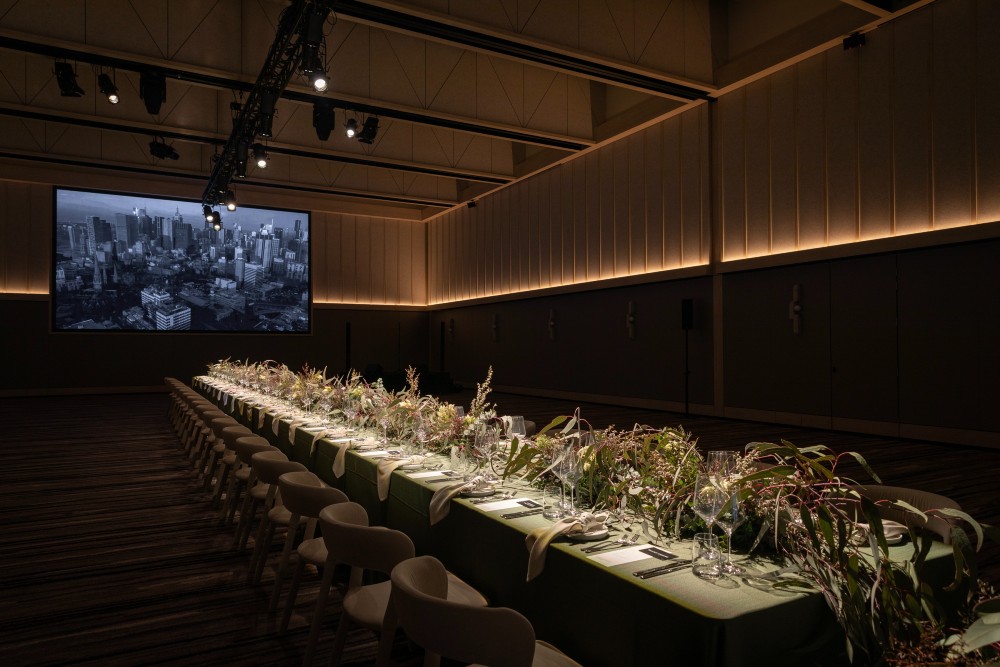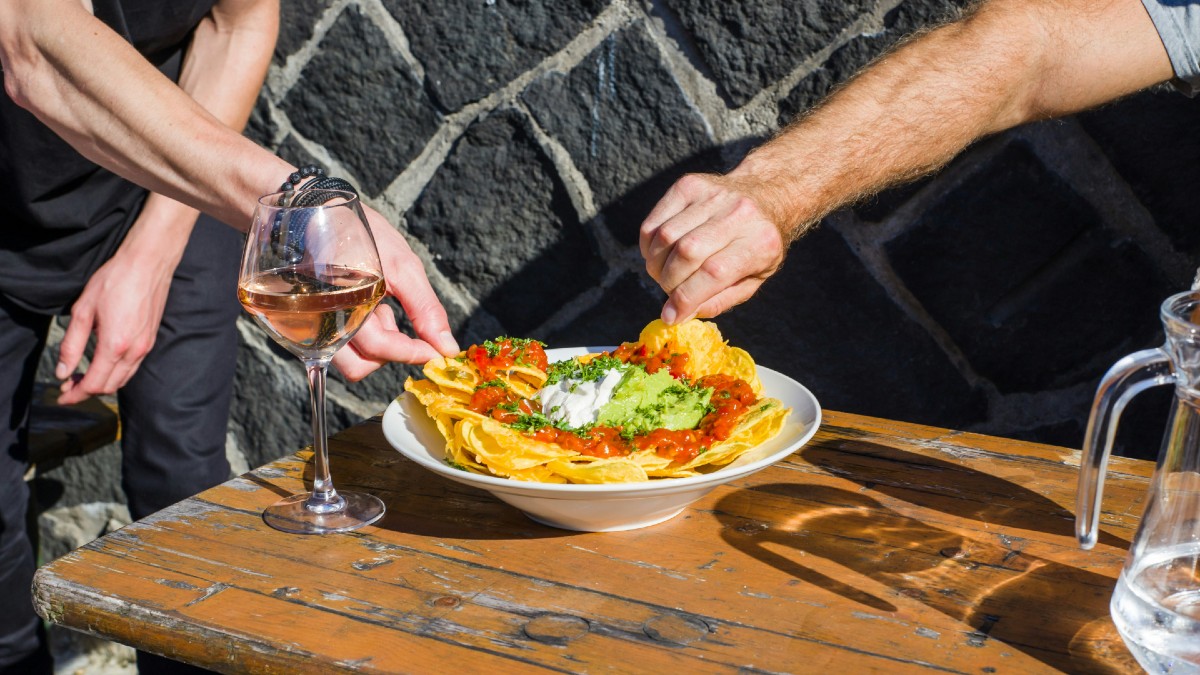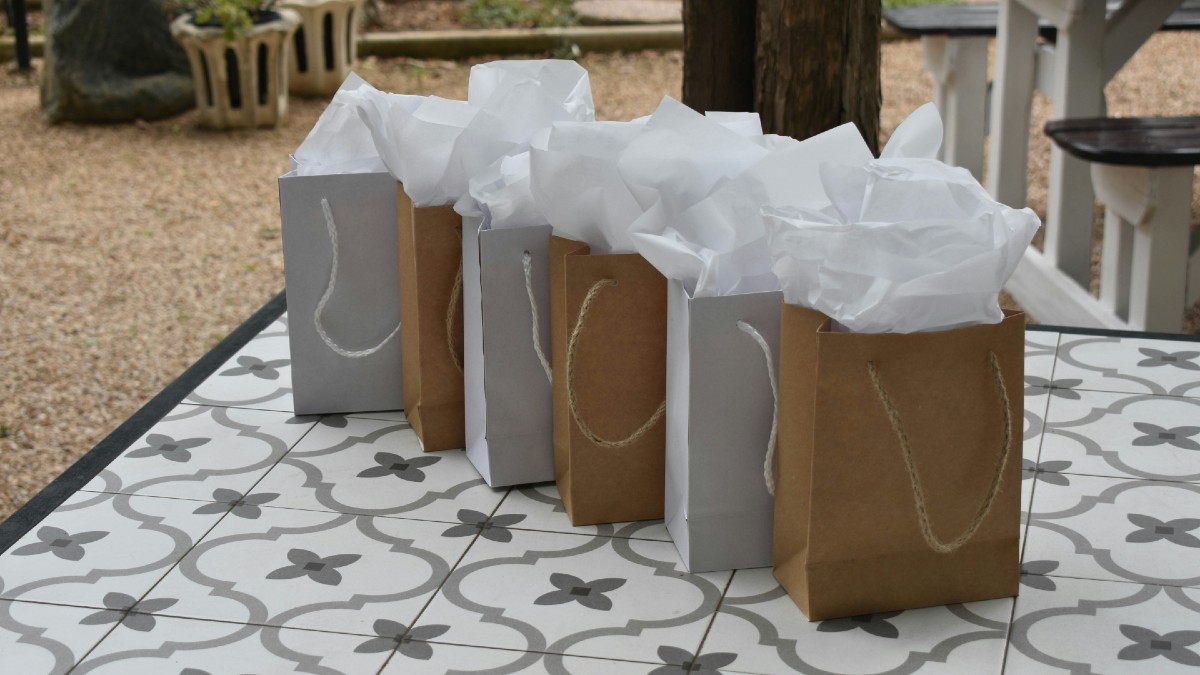
Written by: Cara Tirona
August 12, 2024
Networking is the lifeline of the professional world, connecting ideas, opportunities, and partnerships. Networking events are a crucial aspect of this world, providing a platform for professionals to make meaningful connections and expand their business circles. However, organising successful networking events can be challenging without the right strategies in place. In this guide, we will discuss the key elements of hosting a successful networking event. So let's dive in!
Table of Contents
- Why Networking Events Matter
- Laying the Foundation with Effective Networking Strategies
- Common Types of Networking Venues
- The Day of the Event: Tips for Success
- Amplifying Your Event with Strategic Promotion and Engagement
- Following Up: The Key to Maintaining Connections
- Conclusion: Creating an Unforgettable Networking Event
Why Networking Events Matter
Networking events provide a platform for professionals to establish and strengthen connections, generate leads, and expand their business network. Attending these events can lead to new opportunities, collaborations, or partnerships that can potentially benefit your career or business. However, organising a successful networking event requires careful planning and execution. It is not just about the food and drinks; it's about creating an environment that fosters meaningful interactions and adds value to all attendees.
Laying the Foundation with Effective Networking Strategies
When organising a networking event, it is essential to have a clear objective in mind. Are you looking to attract new clients, employees, or partners? Or perhaps you want to build brand awareness and establish your company's presence in the industry. Defining your purpose will help guide your planning process and ensure that the event aligns with your goals.
Identifying Your Target Audience
Before organising a networking event, it is essential to identify your target audience. Are you aiming to connect entrepreneurs, industry professionals, or specific niche groups? Identifying the right audience will help you tailor your event to meet their needs and preferences. You can also use this information to select the ideal venue, speakers, and format for your event.
Setting Clear Objectives
Having clear objectives for your networking event is crucial in ensuring its success. Are you looking to provide a platform for professionals to establish business connections or promote a specific product/service? Clarifying your goals will help you structure the event accordingly. It will also help in measuring the success of the event and identifying areas for improvement.
Creating Buzz and Attracting Attendees
Once you have established your objectives and identified your target audience, it's time to spread the word and attract attendees. Utilise social media platforms, email marketing, and personal invitations to create buzz around your event. Collaborating with industry influencers or offering early bird discounts can also help generate interest and increase attendance.

Crafting the Perfect Agenda
A well-structured agenda with a mix of formal presentations and casual mingling can significantly enhance the networking experience. Consider incorporating activities like icebreakers, group discussions, and networking games to encourage interaction among attendees. Additionally, having a designated time for open networking allows participants to make connections at their own pace.
Choosing the Right Venue
The venue sets the tone for your event and can significantly impact attendance. Consider factors such as location, accessibility, parking, and capacity when selecting a venue. You can also add a unique touch by choosing a non-traditional venue, such as a rooftop or art gallery, to make your event stand out. Keep in mind the overall aesthetic and ambience of the venue to create a welcoming atmosphere for your attendees.
Providing Value to Attendees
Networking events should not solely focus on promoting businesses or products; they should also provide value to attendees. Consider including workshops, keynote speakers, or educational sessions related to your target audience's interests and needs. This will not only attract more attendees but also add value and credibility to your event.
Common Types of Networking Venues
Choosing the right venue is a critical component in the success of any networking event. The venue influences the event’s atmosphere, accessibility, and, ultimately, the attendees' experience. Here are some common types of venues used for networking events and what each offers:
Conference Centres and Meeting Rooms
Conference centres and meeting rooms are traditional choices for networking events, especially those that include keynote speeches, workshops, or panel discussions. These venues are equipped with professional audio-visual equipment and can accommodate large groups comfortably. They often provide a formal setting, which can be ideal for industry-specific gatherings or professional associations.
Restaurants and Cafés
Restaurants and cafés offer a more relaxed atmosphere for networking events. These venues are ideal for smaller, more informal gatherings where the emphasis is on casual conversations over meals or drinks. Many restaurants and cafés have private rooms or areas that can be reserved for such events, providing a semi-private space for attendees to mingle.
Outdoor Spaces
Outdoor spaces, such as gardens, rooftops, or patios, provide a unique and refreshing setting for networking events, especially during the warmer months. These venues allow for a relaxed atmosphere and can make social interactions more casual and engaging. However, it’s important to have a contingency plan for bad weather to ensure the event can proceed smoothly.
Art Galleries and Museums
Art galleries and museums offer an inspiring backdrop for networking events, making them particularly suitable for creative industries. These venues often spark conversation and can add a cultural dimension to your event. Hosting an event in such a space can also provide attendees with an exclusive experience, as they may enjoy private viewings of exhibitions.
Hotels and Event Spaces
Hotels and event spaces are versatile options that offer various amenities, catering services, and equipment for networking events. These venues can accommodate both large and small gatherings, making them suitable for a variety of purposes. They also often have dedicated event planners to assist with organising the event logistics.
Co-working Spaces
Co-working spaces are becoming increasingly popular venues for networking events, especially for entrepreneurs and freelancers. These venues foster a sense of community and innovation, making them ideal for collaborative and tech-focused events. Co-working spaces are designed for flexibility and often have various areas suitable for both formal presentations and informal networking.
When selecting a venue for your networking event, it's essential to consider the nature of the event, the number of attendees, and the overall atmosphere you wish to create. The right venue can significantly enhance the networking experience and contribute to the event's success.
The Day of the Event: Tips for Success
The success of your networking event doesn't end with planning and promoting; it also relies on the execution of the day itself. Here are some tips to ensure a smooth and successful event:
Attention to Detail
Ensure that all logistical details, such as registration, name tags, and seating arrangements, are taken care of before the event. Providing a good first impression will set the tone for your attendees' overall experience.
Making Everyone Feel Welcome
Networking events can be intimidating for some attendees, especially if they are attending alone. Encourage your team to be welcoming and approachable, and provide opportunities for attendees to connect with others who share similar interests. This will create a comfortable and inclusive environment for all attendees.
Encouraging Meaningful Interactions
The success of a networking event depends on its ability to foster meaningful connections between attendees. To achieve this, it is crucial to create an engaging atmosphere that encourages interaction. Ensure that the event allows ample time for attendees to interact with each other, whether it's through structured activities or open networking sessions. Avoid overcrowding the agenda and allow for breaks to give attendees a chance to recharge. Consider incorporating interactive activities, icebreakers or setting up designated areas for networking. You can also curate the guest list to ensure a diverse mix of attendees, creating opportunities for new connections and collaborations.
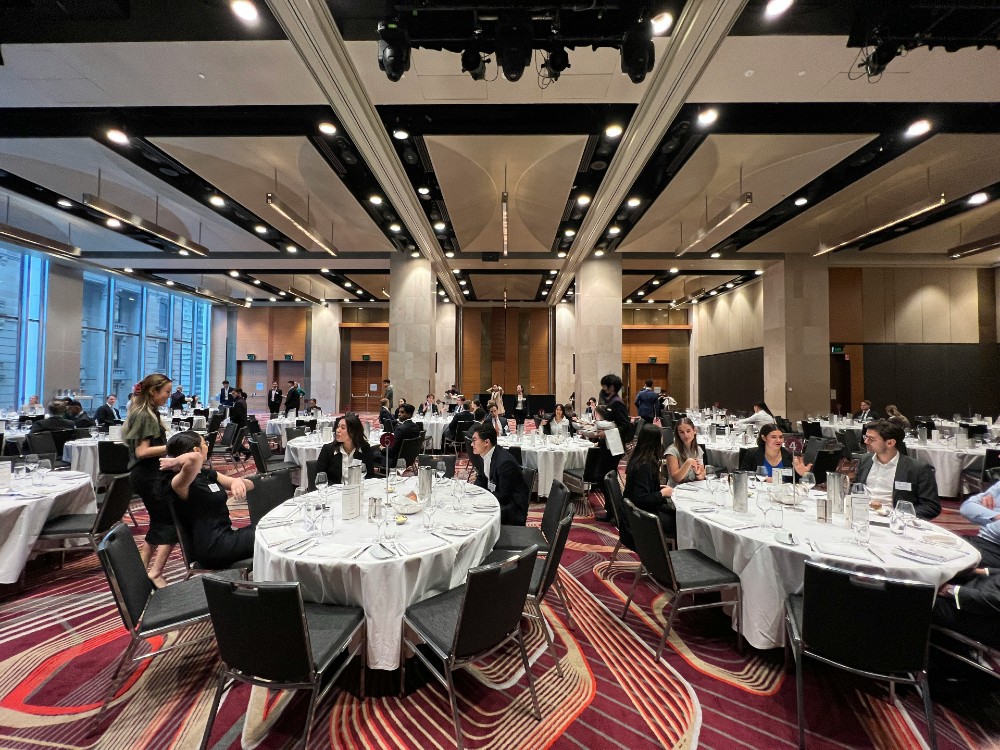
Managing Event Logistics Efficiently
Efficient management of event logistics is pivotal to the success of any networking event. Ensure that everything from audio-visual equipment to catering is meticulously planned and executed. It’s important to coordinate with your vendors well in advance to avoid any last-minute hiccups. Also, consider having a contingency plan for unexpected issues that may arise. Remember, a seamless execution on the day will leave a lasting impression on your attendees and can greatly contribute to the overall experience and success of the event.
Offering Delicious Food and Beverages
Food and beverages not only keep attendees well-fed and hydrated but also provide an opportunity for them to mingle during breaks. Consider offering a mix of healthy options, vegetarian/vegan alternatives, and accommodating dietary restrictions. You can also incorporate themed food or drink options that tie in with your event's purpose or industry.
Create An Inviting Ambience
The overall ambience of the event can make or break an attendee's experience. Ensure that the lighting, music, and decor are conducive to networking and creating a welcoming atmosphere. Consider adding some personal touches, such as branded signage or swag bags, to add a unique touch to your event.
5 tricks for surviving networking events for the introverted
Amplifying Your Event with Strategic Promotion and Engagement
To ensure a successful networking event, here are some additional tips to keep in mind:
Harnessing Social Media for Event Promotion
Before, during, and after your networking event, it's crucial to maintain a strong presence on social media. Social media is a powerful tool that can help increase the reach and visibility of your event. Use relevant hashtags, create engaging posts, and share updates to generate interest and attract more attendees. You can also collaborate with influencers or industry experts to promote your event. After the event, create a post-event online community for attendees to continue networking and share their experiences.

Engaging Potential Attendees with Compelling Invitations
Crafting compelling invitations is essential to captivating your potential attendees' interest and ensuring they feel personally invited to your event. An effective invitation should not only provide key details—such as the event’s purpose, date, location, and agenda—but also highlight what makes your event unique and worthwhile. Consider personalising the invitations to address each recipient by name and include a personalised message that resonates with their interests or industry role. This personal touch can significantly increase the likelihood of their attendance. Additionally, make the response process as straightforward as possible, with clear instructions on how to RSVP or purchase tickets. Remember, the invitation is often the first impression of your event, so making it memorable and engaging is crucial for setting the tone and enticing your audience.
Following Up: The Key to Maintaining Connections
The connections made at your networking event shouldn't end there. Encourage attendees to exchange contact information, and follow up after the event with personalised messages. You can also use social media platforms or email marketing to keep in touch with attendees and provide them with valuable resources, such as event presentations or networking opportunities. This not only strengthens the relationship between attendees but also keeps them engaged and interested in future events.
In addition, don't forget to collect feedback from attendees to help improve future events. This can be done through surveys or by encouraging attendees to share their thoughts on social media. You can use this feedback to make necessary changes and continuously enhance the experience for future attendees. Remember, a successful networking event is not just about one-time connections but also building long-lasting relationships with your attendees.
Conclusion: Creating an Unforgettable Networking Event
Organising a successful networking event is both an art and a science, requiring careful planning, execution, and follow-up. By leveraging the insights and strategies outlined in this blog, you can create business mixers that not only connect people but also foster meaningful professional relationships. Always keep in mind that the key to a successful event lies in creating an engaging atmosphere, managing logistics efficiently, offering delicious food and beverages, and amplifying your event with strategic promotion and engagement. Remember to follow up after the event to maintain connections and continuously improve future events. With these tips in mind, you can create an unforgettable networking experience that attendees will be eager to attend.
Ready to plan your next event? Explore VenueNow's marketplace today for an effortless venue-finding experience. Discover the perfect venue that meets all your needs with ease.
Looking for an event venue to hire?
VenueNow has you covered with over 2,000 venues across Australia ranging from large event spaces to small meeting rooms. Find your perfect venue for hire faster than anywhere else.
Follow us on social media to stay up to date with the latest news
Customers
Want to get in contact?
Call our support team on 1300 647 488 during business hours AEST.
Follow Us
© Copyright VenueNow 2026 | SPARE GROUP PTY LTD | ABN 22 607 830 302


